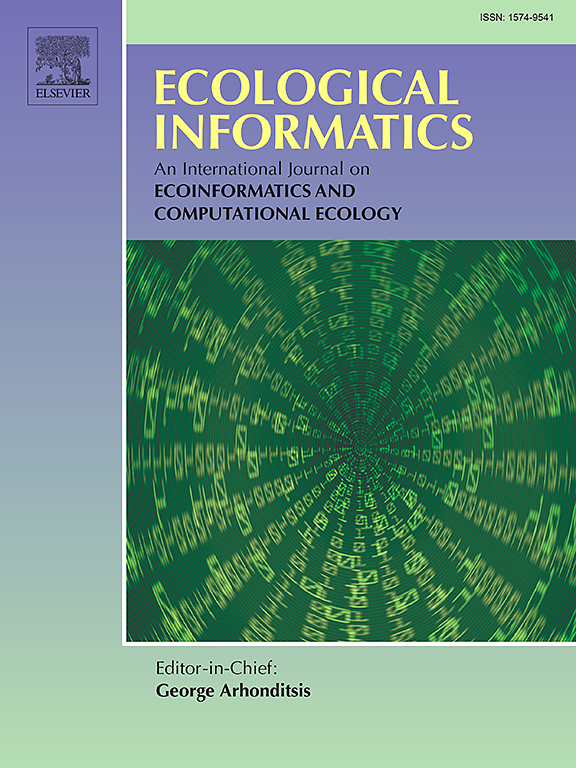Testing life-cycle assessment data quality with Benford’s law reveals geographic variation
IF 7.3
2区 环境科学与生态学
Q1 ECOLOGY
引用次数: 0
Abstract
Life-Cycle Assessment (LCA) is a methodology that is used extensively for evaluating the environmental impacts of products and processes throughout their lifetime. The method is highly dependent on the quality and accuracy of the underlying data. Moreover, the data acquisition process can be subjective, raising concerns about potential inconsistencies. In this study, we perform Benford’s law conformity tests (first digit) on all numerical data in ecoinvent, focusing on individual compartments (air, water, soil, and natural resources) and environmental elementary flows (carbon, toxic substances, greenhouse gases, and heavy metals), and discrepancies across continents are examined.
Life Cycle Inventory data met the requirements of Benford’s law and generally exhibited high conformity. Substantial differences in conformity were observed between Africa and Europe. Individual processes and measurements were inspected to further isolate potential sources of the non-conformity. The statistical significance of the results was increased using open-source databases available on OpenLCA Nexus, including WorldSteel, OzLCI2019, ELCD, NEEDS, BioenergieDat, and Exiobase. Finally, the Environmental Performance Index (EPI) was used, and a strong correlation between continental Benford conformity results and corresponding EPI scores was observed.
The findings suggest that discrepancies in conformity across continents reflect differences in data transparency and reporting practices. European datasets generally show higher conformity, likely owing to the use of more standardized methodologies. In contrast, data from regions with limited infrastructure or less established LCA practices tend to show lower conformity. Benford’s law offers a simple and computationally efficient alternative to conventional data quality assessments without requiring additional metadata or probabilistic modeling. Its application can support the detection of systemic biases and improve the reliability of LCA-based indicators such as environmental product declarations.

用本福德定律检验生命周期评估数据质量揭示了地理差异
生命周期评价(LCA)是一种广泛用于评价产品和过程在其整个生命周期中对环境影响的方法。该方法高度依赖于基础数据的质量和准确性。此外,数据采集过程可能是主观的,引起了对潜在不一致的担忧。在本研究中,我们对ecoinvent中的所有数值数据执行本福德定律符合性测试(第一个数字),重点关注单个隔间(空气、水、土壤和自然资源)和环境基本流(碳、有毒物质、温室气体和重金属),并检查了各大洲之间的差异。生命周期清单数据符合本福德定律的要求,总体上具有较高的符合性。非洲和欧洲在一致性方面存在很大差异。对个别过程和测量进行了检查,以进一步隔离不合格的潜在来源。使用OpenLCA Nexus上的开源数据库(包括WorldSteel、OzLCI2019、ELCD、NEEDS、BioenergieDat和Exiobase),结果的统计显著性得到了提高。最后,使用环境绩效指数(EPI),观察到大陆本福德一致性结果与相应的EPI得分之间存在很强的相关性。研究结果表明,各大洲一致性的差异反映了数据透明度和报告实践的差异。欧洲数据集通常显示出更高的一致性,可能是由于使用了更标准化的方法。相比之下,来自基础设施有限或LCA实践较少的地区的数据往往显示出较低的一致性。本福德定律为传统的数据质量评估提供了一个简单且计算效率高的替代方案,而不需要额外的元数据或概率建模。它的应用可以支持系统偏差的检测,并提高基于lca的指标(如环境产品声明)的可靠性。
本文章由计算机程序翻译,如有差异,请以英文原文为准。
求助全文
约1分钟内获得全文
求助全文
来源期刊

Ecological Informatics
环境科学-生态学
CiteScore
8.30
自引率
11.80%
发文量
346
审稿时长
46 days
期刊介绍:
The journal Ecological Informatics is devoted to the publication of high quality, peer-reviewed articles on all aspects of computational ecology, data science and biogeography. The scope of the journal takes into account the data-intensive nature of ecology, the growing capacity of information technology to access, harness and leverage complex data as well as the critical need for informing sustainable management in view of global environmental and climate change.
The nature of the journal is interdisciplinary at the crossover between ecology and informatics. It focuses on novel concepts and techniques for image- and genome-based monitoring and interpretation, sensor- and multimedia-based data acquisition, internet-based data archiving and sharing, data assimilation, modelling and prediction of ecological data.
 求助内容:
求助内容: 应助结果提醒方式:
应助结果提醒方式:


